What happens when the CCP decides that you need to die
The manner in which a state kills people has major implications for that state's structure
Content warning: extremely graphic distressing images of people being shot in the head by PRC security forces.
The PRC executes between five and ten thousand people per year via official judicial channels, and probably many more via militarized kangaroo courts, outright terror killings in Tibet, Uigherstan, and Southern Mongolia, or "disappearances" elsewhere. Data is sparse and unreliable because the CCP likes it that way. Effective systems of state terror rely on a dance between the known and the unknown in the mind of the public.
The body count isn't interesting in and of itself, it's just a million small atrocities condensed into another horrific footnote in the wiki page. What is interesting is the methods and personnel they use, and what those choices tell us about who the CCP fears. Lots of pixels have been spilled over the mobile gas vans and portable lethal injection rigs, but if the CCP decides that you need to die, the primary way they'll have you killed is with a gunshot to the back of the head. Basically a classic 20th century field execution.
The "hogtie, throw to the ground, and shoot in the back of the head" approach to killing people is popular with state terrorists for lots of reasons, not least of which is that it scales well from individuals to whole ethnic or political groups. The Soviet Cheka - later KGB - used this exact method to murder tens of thousands of Poles in what we now call the Katyn Massacre, to say nothing of the hundreds of thousands of others directly liquidated by Stalin’s regime. The Nazi occupiers of the “General Government” territories in eastern Europe carried out early extermination campaigns against Jews and other undesirables before eventually suspending it because of the psychological toll it took on the special units - Einsatzgruppen - assigned to the task.
The innovation that the CCP has adopted is to involve a large proportion of their police and judiciary in the process as directly as possible. The Soviets and Nazis generally had special purpose units for this sort of work - the Cheka “wetwork” section and SS Einsatzgruppen stand out in particular - but in PRC it's a routine task for routine personnel. Western governments generally take great care is taken to insulate law enforcement personnel from state-sanctioned killing. The environment and process of an execution is controlled, clinical, and highly restricted. Very few cops ever see the inside of a death chamber. In PRC the opposite is true.
When the CCP decides to kill you, they usually do it outdoors, and often in semi-public places. Regular judicial personnel handle identity confirmation and terminal legal dispositions. Multiple officers are required to wrestle the victim to the ground and hold them there. Then another officer walks up with a gun, and bang, lights out.
Source: unknown firewall jumper inside PRC via RFA
Once the deed is done and the victim is deceased, or wounded badly enough that death is inevitable, they are often harvested for their organs. The medical personnel who do this are usually conscripted and not told in advance what they'll be required to do.
At every step of the process the maximum number of personnel from the mainline police and judicial system are used to carry out the killing. Why? It spreads out the complicity by making sure that everybody who could have blood on their hands does. It's insurance for the CCP.
Source: AP photo via DW
The CCP knows that the biggest threat to its continued rule is members of its security apparatus deciding not to do their jobs anymore. One of the best ways to ensure that ordinary cops toe the line is to make them a crucial part of your killing machine. The logic is pretty straightforward: if a substantial fraction of your armed police have directly participated in “social cleansing” of undesireables like petty drug abusers, liquidation of badly-behaved members of minority groups, or outright political murders of people within the CCP hierarchy, it's not particularly difficult to convince them that regime change would result in them being afforded the same treatment by whomever seizes power.
It's also a technique for building a certain kind of very evil state capacity. Most regimes would have great difficulty killing large numbers of people quickly and procedurally, but not the CCP. They have a paramilitary police force that can conduct executions at scale. There's no dedicated roving death squad, no group of commandos drugging people and dropping them out of airplanes, no warehouse-sized gas chambers, no mass graves. Just cops, judges, Maoist collective action, small arms, and crematoria.
Routine, in other words.
Source: Friends of Tibet
When the CCP falls, or when a less brutal leadership dynasty comes to power, the process of tracing the trail of blood left by PAP and PLA executioners will begin in earnest. There will be recriminations and retributive violence. It’s likely that some officers who participated in the decades of state sanction slaughter will face the same grisly, unceremonious end that they inflicted on others. The world’s largest authoritarian security state secures itself with a thick blanket of collective guilt.
Notes
Just so my thoughts on the subject are explicit: it is morally repugnant for a modern state to take the life of somebody they already have safely sequestered from society, no matter how vile that person’s crime. The US has indulged this practice for far too long; it is high time that we end the death penalty.
This piece is based on a thread I published back in May of 2020. I think it’s important to practice writing frankly about uncomfortable subjects, which I’m attempting to do here. Beyond that, more people really need to know how PRC actually functions internally, past the curtain of prosperous modernity that you see in the coastal metropolises. This is the regime that Chinese, Uigher, Mongol, and Tibetan people deal with on a daily basis. Westerners should make an effort to understand it better.

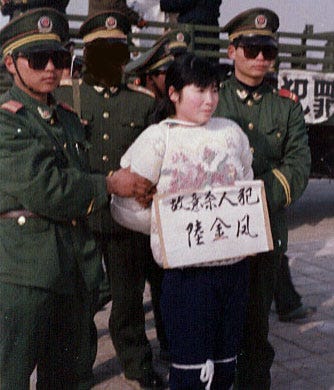
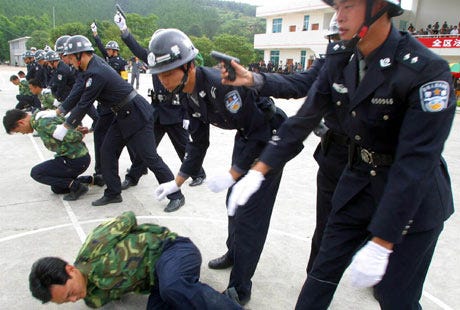
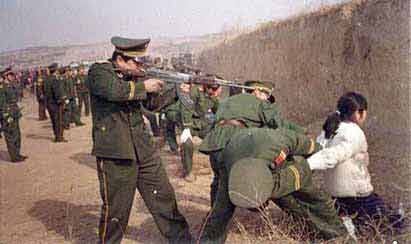
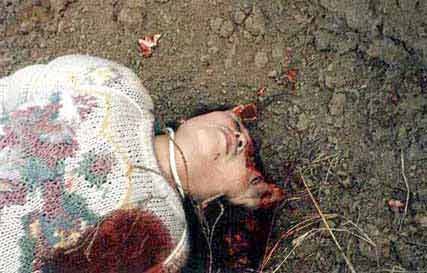
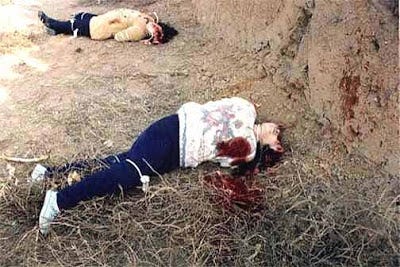
Do you see the CCP falling anytime soon? It seems possible but unlikely to me; demographic trends don't help them though
Very insightful! Good analysis.
I think that the language barrier between eastern Asia and Western countries makes it easy for the Chinese to maintain two sets of optics: one for their citizens, and one for the rest of the world. This is one area where advances in translation software could be extremely disruptive.